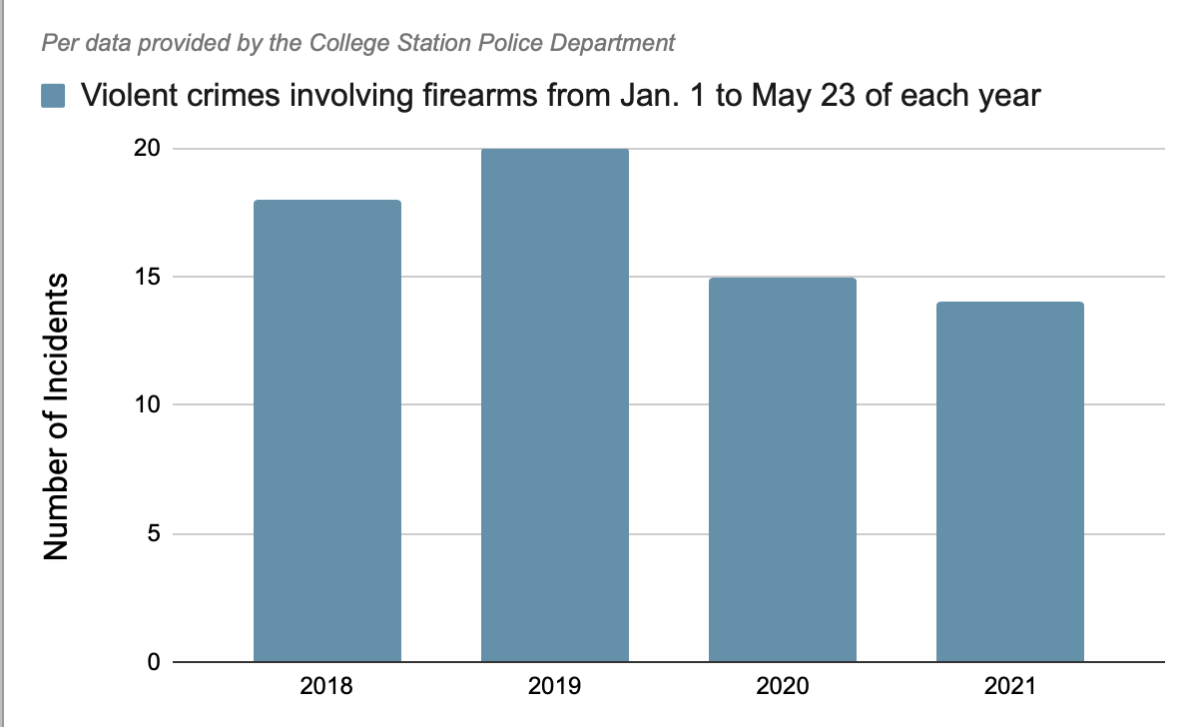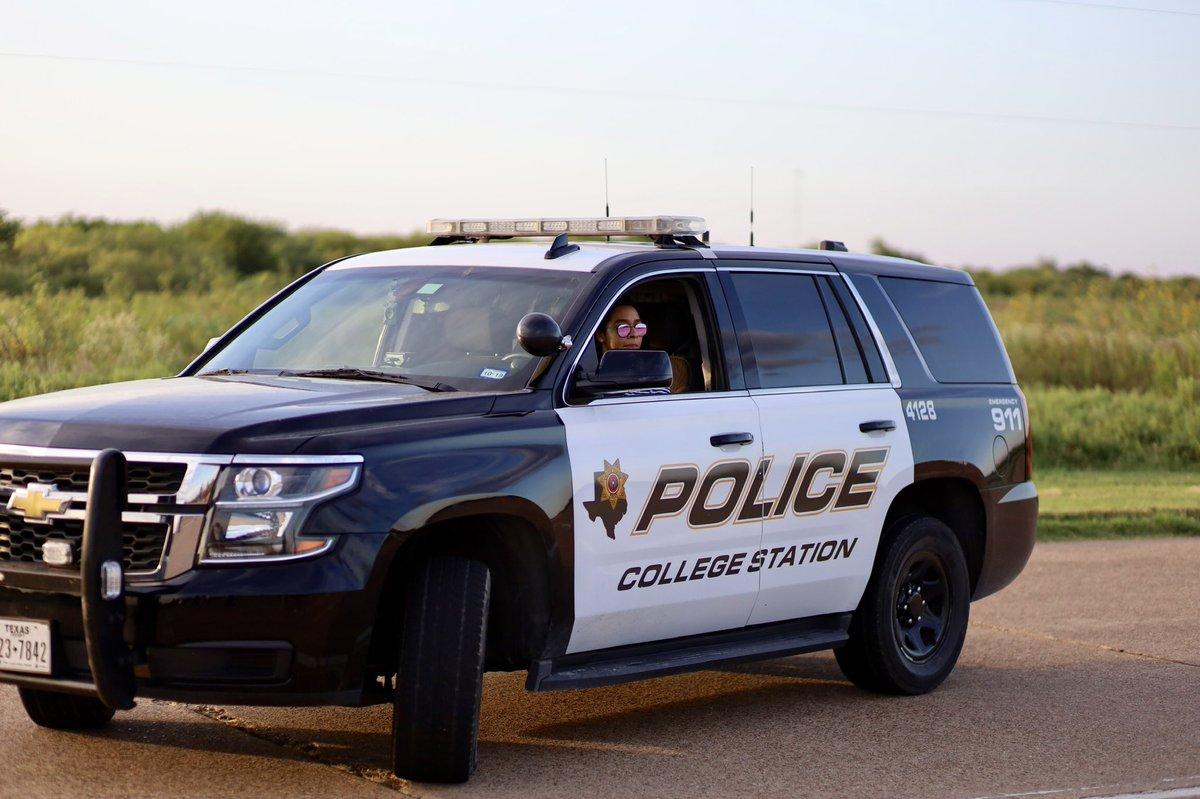For four days, College Station did not go 24 hours without a shooting.
From May 18 to May 23, there were five separate incidents of gun violence in Bryan-College Station which resulted in two deaths and multiple hospitalizations. The unusually high number of shootings within this period has prompted concern from residents and students on social media to which local officials have since responded and provided guidance.
The U.S. has seen an upward trend in gun violence deaths over the past decade, according to the Giffords Law Center. This year in particular has seen an increase in multiple-victim shootings, according to NBC News analysis in April of Gun Violence Archive data. This uptick is not the case for violent crime in College Station, however.
“While that weekend certainly had an unusually high number of shootings, the number of violent crimes involving firearms [January 1 through May 23] in College Station is actually the lowest it’s been for the past several years,” public information officer for the College Station Police Department Tristan Lopez said.
According to statistics provided by CSPD, the number of violent crimes involving firearms for this year is 14, which is one less than the same period of time in 2020. This figure includes the recent series of shootings. The number was higher for the same period in 2018 and 2019, with 18 and 20 incidents respectively.
According to local statistics, the number of violent crimes involving firearms for the current year is 14, down one from the beginning of last year. “Most, if not all, of these crimes occur between individuals known to each other as opposed to being acts against random people,” Lopez said, “and many of these involve illegal narcotics.”
The most prevalent crimes in the city are consistently property crimes, of which the most common are often vehicle burglaries, Lopez said.
This May, the Texas Legislature approved the constitutional carry bill, set to be signed by Gov. Greg Abbott, which would allow Texans to carry handguns without permits or training. As a gun owner, international studies junior Alexia Hernandez said this could potentially exacerbate gun violence in the state and Texas A&M community.
“What definitely worries me about an uptick of crimes is that people who will now have these guns without any training on them in public, will see it more as an option to solve a problem other than words or a third party intervening,” Hernandez said. “They’ll see a gun right next to them and they may see that [gun] as a means to solve their problems and personal disputes.”
The double shooting on Fri. May 21, which claimed the life of Cameron James Gray of Navasota and injured another individual, was the result of an altercation between people who knew each other, according to police. Additionally, another fatal shooting on May 9 at the College Main Apartments, not within the five-day span, was also between acquaintances, according to KBTX.
“A lot of these people are not hardened criminals, a lot are just pissed off and want to solve a problem, and see red,” Hernandez said.
A common cause for concern surrounding gun violence is the question of people knowing how to respond, Hernandez said. As part of the Student Senate as the community relations chair, Hernandez doesn’t believe enough students are educated on firearms or what to do around them. Staying vigilant and aware of signs of violence is important, such as knowing the difference between fireworks and gunshots, she said.
“It’s a difficult question, how do you predict personal conflicts and interpersonal violence before it happens,” Hernandez said.
Officer Lopez likewise encourages members of the public to be prepared in the event they become involved in a violent crime. In particular, remember the three words “Avoid, Deny, Defend” and their meanings.
“Our first priority is always to prevent the loss of life or great bodily harm,” Lopez said. “When gunfire or another life-threatening hazard occurs, get to a safe place and call 911.”
Preparation can only go so far to prevent harm. Responsibility and training on behalf of a person with a weapon comes first, argued Hernandez. Laws such as the new constitutional carry bill could diminish or downplay the seriousness of what guns can do in the minds of the public, Hernandez said.
“Instead of taking away education, we should provide more education,” Hernandez said. “When you apply for a [Concealed Handgun License] and you go through your training, there’s things that you have to be able to do to complete the certificate, at least in the past. And that was for a reason –– it wasn’t for fun and games. Having a weapon on you is a huge responsibility.
Officer Lopez provided the following tips and resources to decrease the risk of being involved in a violent crime.
-
Don’t get involved in buying or selling illegal drugs.
-
Avoid injecting yourself into others’ fights; instead, call the police.
-
Seek help if you find yourself in an abusive relationship.
-
Involve police if you find yourself a victim of stalking – these situations can be especially dangerous.
-
Seek help for yourself or others who may be abusing drugs.
-
Seek help for yourself or others who may be experiencing deteriorating mental health or mental health crisis.
-
If you find yourself in a situation that is already escalating, get to a safe place and call the police.











